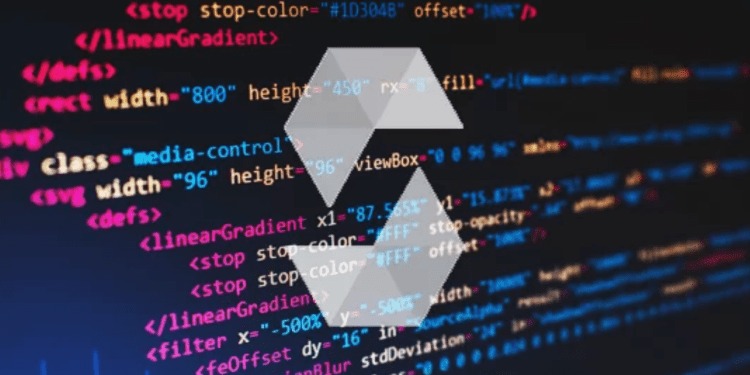- Solang allows engineers to now code in the Ethereum native language, Solidity, on Solana.
- Solang could enable Ethereum smart contracts to execute on Solana, opening up new opportunities for interoperability.
Solana Labs has recently unveiled Solang, a cutting-edge compiler that seamlessly integrates Solidity, Ethereum’s primary programming language, into the Solana ecosystem.
With the inclusion of Solidity in Solana’s repertoire, Solang becomes more inviting to a wider range of developers, highlighting Solana’s commitment to expanding its user base.
Key Features of the Solang Compiler:
Solang boasts an array of essential features that empower developers to leverage their Solidity expertise on the Solana network. The standout functionalities of Solang include the following:
- Ethereum Solidity 0.8 Compatibility: Solang strives for source file compatibility with Ethereum’s EVM Solidity compiler, version 0.8.
- Interacting with Solana Smart Contracts: Developers can now effortlessly interact with other Solana smart contracts, fostering seamless collaboration and integration among different contract instances.
- Support for Solana SPL Tokens: Solang extends its support to Solana SPL tokens, enabling developers to create and manage custom tokens within the Solana ecosystem.
- Program-Derived Addresses: The compiler’s capability to handle program-derived addresses (wallet addresses gendered by smart contracts) is crucial for various functionalities and applications on the Solana platform.
- Integration with Anchor: Solang enables developers to effectively utilize Anchor, a high-level framework designed to streamline the creation of Solana smart contracts.
- Building Native Solana Smart Contracts: With Solang, developers can construct native Solana smart contracts, harnessing the full potential of the Solana network.
- Access to Native Solana Builtin Functionality: Solang provides developers direct access to native Solana Builtin functionality, enriching the smart contract development experience.
Differences between Solidity on Ethereum and Solana
When comparing Solidity usage on Ethereum with Solang on Solana for smart contract development, several differences become evident due to the distinctive characteristics of each blockchain environment.
One fundamental difference is how gas and compute units are utilized for contract execution. Ethereum relies on gas to cover the costs of contract execution and prioritize transactions. In contrast, Solana focuses on achieving low latency and high transaction throughput, using compute units with a fixed quantity assigned to each contract function.
Another dissimilarity pertains to contract instantiation. On Solana, each Solidity contract requires two separate accounts: a program account, which stores the executable binary, and a data account, designated for storage variables. In contrast, Ethereum utilizes a single account to store both the executable code and the data.
Furthermore, the process of contract upgrades diverges between the two platforms. Solang on Solana streamlines the upgrade process, allowing updates to the binary in the program account while retaining the existing data. In contrast, contract upgrades in Ethereum entail greater complexity, necessitating careful data migration to ensure a seamless transition.
Bridging Solana and Ethereum
Solang offers developers a powerful tool to bridge the development ecosystems of Solana and Ethereum. Notably, it can target the Parity Substrate to enable events to be declared outside of contracts and allow base contracts to be declared in any order, granting developers enhanced flexibility in their smart contract development process.
The introduction of Solang to the Solana blockchain holds significant implications, particularly for developers with Solidity expertise gained from working on Ethereum smart contracts. By seamlessly enabling Solidity usage on Solana, Solang presents an exceptional opportunity for the cross-pollination of talent.
Developers already well-versed in Solidity can smoothly transition to building on Solana, exploring the features and possibilities offered by the platform’s high-performance blockchain.
One of the key advantages of Solang lies in its compatibility, fostering interoperability between Solana and Ethereum. Smart contracts written in Solidity on Solana using Solang can now interact with Ethereum-based contracts and vice versa.
This newfound cross-chain capability opens the door to various cross-chain DApps and DeFi protocols. By bridging assets and functionalities between Solana and Ethereum, Solang unlocks a new realm of possibilities for the broader blockchain ecosystem.
Conclusion
The introduction of Solang as a Solidity compiler for Solana marks a pivotal moment in the platform’s evolution. By integrating Solidity, Solana has bolstered its accessibility to developers and enriched its capabilities with the power of Ethereum’s primary programming language.
With its host of features, beginner-friendly guide, and unique attributes, Solana has emerged as an attractive option for developers seeking high-speed, low-cost smart contract development with enhanced accessibility and efficiency.














